Whether you’re a seasoned yogi or embarking on your journey, understanding the principles of pre- and post-yoga nutrition will elevate your practice and contribute to your overall well-being.
Timing Your Pre-Yoga Meal
Yoga, a holistic practice that combines physical postures, breathing exercises, and meditation, has gained immense popularity for its myriad benefits, including improved flexibility, strength, balance, and mental well-being. While yoga itself is a powerful tool for transformation, nourishing your body with the right foods before and after your practice can further enhance your experience and optimize your results.
Effects of Empty and Full Stomachs on Yoga Performance
Empty Stomach:
- Potential Discomforts: Practicing yoga on an empty stomach can lead to lightheadedness, dizziness, and fatigue, especially during inversions and deep stretches. This is because your body’s energy stores are depleted, and there’s insufficient blood sugar to support your movements.
- Digestive Issues: An empty stomach may also increase the likelihood of digestive discomfort, such as cramps, bloating, and nausea, particularly during twisting and bending poses. These issues can disrupt your focus and interfere with your practice.
Full Stomach:
- Reduced Flexibility: Eating a heavy meal too close to your yoga session can hinder your flexibility and range of motion. This is because your digestive system is actively working, diverting blood flow away from your muscles and limiting your ability to move freely.
- Digestive Discomfort: Similar to an empty stomach, a full stomach can also lead to digestive discomfort during yoga poses. This can be exacerbated by the pressure exerted on the abdomen during inversions and deep twists.
Ideal Timing for Light and Heavy Meals Before Yoga
Light Meals:
- Timing: For a light snack, such as a banana, a handful of nuts, or a piece of fruit, aim to eat 30-60 minutes before your yoga practice. This allows your body to absorb some nutrients while avoiding digestive discomfort.
Heavy Meals:
- Timing: If you plan to have a larger meal, such as a sandwich, salad, or bowl of oatmeal, allow 2-3 hours for proper digestion before your yoga practice. This ensures that your body has sufficient time to process the food and provide you with sustained energy throughout your session.
Balancing Nutrient Intake and Digestive Comfort
The key to balancing nutrient intake and digestive comfort before yoga lies in choosing nutrient-rich options that provide your body with the energy it needs while avoiding digestive issues. Here are some tips to help you strike the right balance:
- Prioritize Complex Carbohydrates: Opt for whole grains, fruits, and vegetables as your primary source of carbohydrates. These foods provide sustained energy and promote digestive health.
- Include Protein: Protein is essential for muscle repair and recovery. Include a source of protein, such as nuts, seeds, or lean protein sources, in your pre-yoga meal or snack.
- Moderate Fat Intake: Healthy fats, such as avocados, olive oil, and nuts, can provide additional energy and support satiety. However, consume them in moderation to avoid digestive upset.
- Hydration is Key: Drink plenty of water throughout the day, and start hydrating at least 30 minutes before your yoga practice. Proper hydration maintains electrolyte balance, regulates body temperature, and prevents muscle cramps.
Choosing Nutrient-Rich Pre-Yoga Foods
As you embark on your yoga journey, it’s crucial to understand the importance of proper nutrition, particularly before and after your practice. Choosing nutrient-rich pre-yoga foods can significantly enhance your performance, support muscle repair, and promote overall well-being.
Carbohydrates: The Primary Energy Source
Carbohydrates are your body’s primary source of energy during exercise, including yoga. They provide the fuel your muscles need to perform movements, maintain balance, and sustain your practice. Opt for complex carbohydrates, such as whole grains, fruits, and vegetables, over refined carbohydrates, like white bread and sugary drinks. Complex carbohydrates provide sustained energy, promote digestive health, and offer essential nutrients.
Protein: Building and Repairing Muscles
Yoga engages various muscle groups, leading to micro-tears that require repair. Protein plays a vital role in muscle repair and recovery, ensuring that your body is ready for the next session. Include lean protein sources in your pre-yoga meal or snack, such as nuts, seeds, eggs, yogurt, or a small portion of lean chicken or fish.
Healthy Fats: Sustained Energy and Satiety
Healthy fats, such as avocados, olive oil, and nuts, can provide additional energy and support satiety, keeping you feeling energized throughout your yoga practice. They also contribute to nutrient absorption and play a role in hormone regulation. Consume healthy fats in moderation to avoid digestive discomfort.
Sample Pre-Yoga Meal Ideas
Fruit and Nut Smoothie
A fruit and nut smoothie is a quick, easy, and nutritious way to fuel your body before yoga. It provides a good balance of carbohydrates, protein, and healthy fats, which will help you feel energized and focused during your practice.
Ingredients:
- 1 banana
- 1 cup berries (any type)
- 1/2 cup spinach
- 1 scoop protein powder
- 1 cup almond milk
Instructions:
- Combine all ingredients in a blender and blend until smooth.
- Enjoy!
Whole-Wheat Toast with Avocado
Whole-wheat toast with avocado is another healthy and satisfying option for a pre-yoga meal. It provides complex carbohydrates for sustained energy, healthy fats for satiety, and fiber for digestive health.
Ingredients:
- 1 slice whole-wheat toast
- 1/2 avocado, mashed
- Salt and pepper to taste
Instructions:
- Toast the bread.
- Spread mashed avocado on the toast.
- Season with salt and pepper to taste.
Yogurt with Berries and Granola
Yogurt with berries and granola is a protein-packed and energizing pre-yoga snack. It provides a good balance of protein, carbohydrates, and healthy fats, which will help you feel full and satisfied during your practice.
Ingredients:
- 1 cup plain yogurt
- 1/2 cup berries (any type)
- 1/4 cup granola
Instructions:
- Layer yogurt, berries, and granola in a bowl.
- Enjoy!
Hard-Boiled Eggs
Hard-boiled eggs are a convenient and portable source of protein that can be digested easily before your yoga practice. They are also a good source of healthy fats and choline, which is important for brain health.
Ingredients:
- 2 large eggs
- Water
Instructions:
- Place eggs in a saucepan and cover with water.
- Bring to a boil, then reduce heat and simmer for 10 minutes.
- Remove from heat and let sit in hot water for 10 minutes more.
- Peel and enjoy!
Post-Yoga Nutrition
Body’s State of Recovery After Yoga Practice
After engaging in a yoga session, your body enters a state of recovery. Muscle fibers have been micro-torn during the practice, and the body is working to repair these tears and build new muscle tissue. This process requires energy and nutrients, and proper post-yoga nutrition plays a vital role in supporting this recovery and promoting muscle growth.
In addition to muscle repair, your body also needs to replenish glycogen stores, the form of energy stored in your muscles and liver. Yoga depletes glycogen reserves, and consuming carbohydrates after your practice helps restore these stores, providing sustained energy for the rest of the day.
Nutrient Requirements for Muscle Repair, Energy Replenishment, and Overall Health
The ideal post-yoga meal or snack should provide a balance of carbohydrates, protein, and healthy fats to support muscle repair, energy replenishment, and overall health. Here’s a breakdown of the essential nutrients:
- Carbohydrates: Carbohydrates are the primary source of energy for muscle repair and glycogen replenishment. Prioritize complex carbohydrates, such as whole grains, fruits, and vegetables, for sustained energy and fiber content.
- Protein: Protein is crucial for muscle repair and growth. Include lean protein sources, such as chicken, fish, eggs, beans, or lentils, in your post-yoga meal or snack.
- Healthy Fats: Healthy fats, such as avocados, olive oil, and nuts, provide additional energy, support satiety, and promote nutrient absorption. Consume them in moderation to avoid digestive issues.
Timing of Post-Yoga Meal Within the “Golden Window” of Nutrient Absorption
The timing of your post-yoga meal is critical for optimal nutrient absorption and recovery. Aim to consume a meal or snack within 30-60 minutes after completing your practice. This window of time, known as the “golden window,” is when your body is most receptive to absorbing nutrients and repairing muscle tissue.
Delaying your post-yoga meal beyond the golden window can hinder muscle repair and glycogen replenishment, potentially leading to fatigue and delayed recovery. Prioritize consuming a nutritious meal or snack within this timeframe to maximize the benefits of your yoga practice.
Sample Post-Yoga Meal Ideas
Greek Yogurt with Berries and Nuts
Indulge in a refreshing and protein-packed post-yoga snack with Greek yogurt, berries, and nuts. Greek yogurt is an excellent source of protein, providing the building blocks for muscle repair and growth. Berries, such as blueberries, strawberries, and raspberries, offer a burst of antioxidants and essential vitamins, while nuts, like almonds, walnuts, and cashews, provide healthy fats and additional protein.
Salmon with Quinoa and Steamed Vegetables
For a more substantial post-yoga meal, consider a plate of salmon with quinoa and steamed vegetables. Salmon is a rich source of omega-3 fatty acids, which aid in muscle repair and reduce inflammation. Quinoa, a whole grain rich in fiber and complex carbohydrates, provides sustained energy and supports healthy digestion. Steamed vegetables, such as broccoli, asparagus, and carrots, add essential vitamins, minerals, and fiber to your meal.
Chicken Breast with Brown Rice and Roasted Vegetables
Opt for a flavorful and protein-rich post-yoga meal with grilled chicken breast, brown rice, and roasted vegetables. Chicken breast is a lean protein source that promotes muscle repair and recovery. Brown rice, a whole grain packed with fiber and complex carbohydrates, provides sustained energy and supports digestive health. Roasted vegetables, such as bell peppers, zucchini, and onions, add a medley of vitamins, minerals, and antioxidants.
Post-Workout Smoothie
If you’re craving a quick and convenient post-yoga snack, whip up a protein-rich smoothie. Combine protein powder, your favorite fruits, such as banana, berries, or mango, a scoop of yogurt for added protein and creaminess, and a handful of spinach for a boost of nutrients. Blend until smooth and enjoy the refreshing and replenishing smoothie.
Remember, both pre- and post-yoga nutrition play vital roles in maximizing the benefits of your practice. By nourishing your body with the right foods at the right times, you can enhance your performance, promote recovery, and experience the full transformative power of yoga. Hopefully, the above article of TTC has provided you with useful information. If you have any questions or concerns, please leave a comment below.




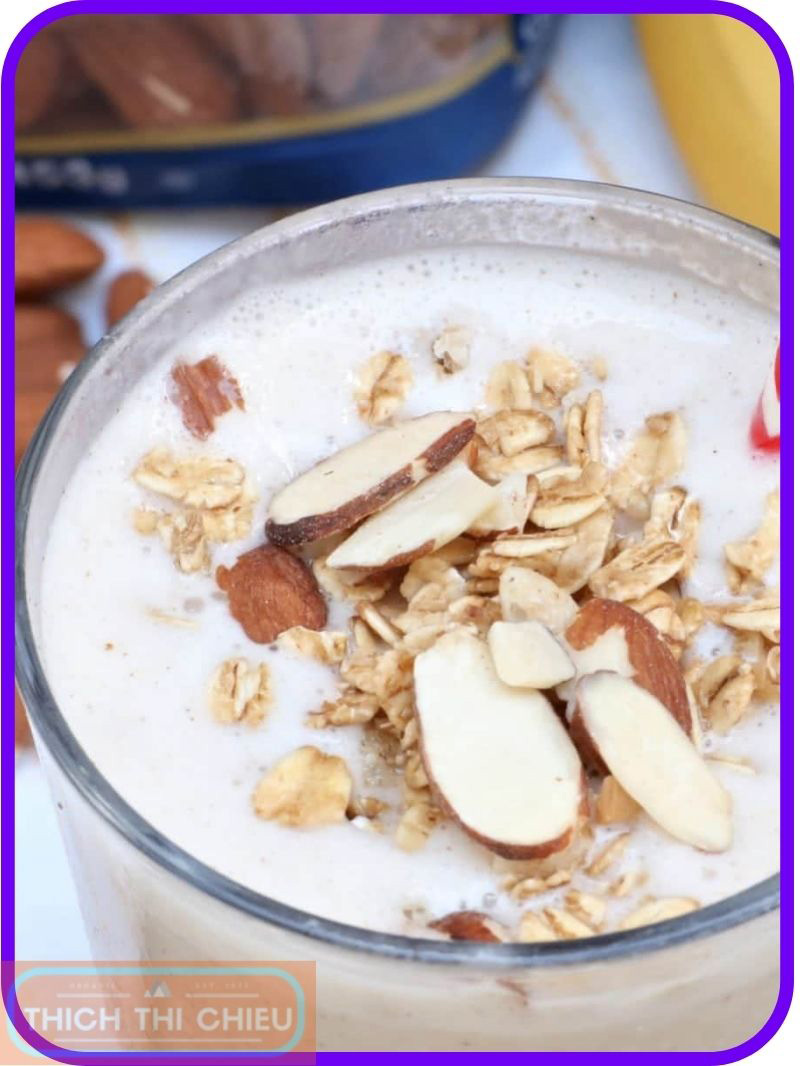
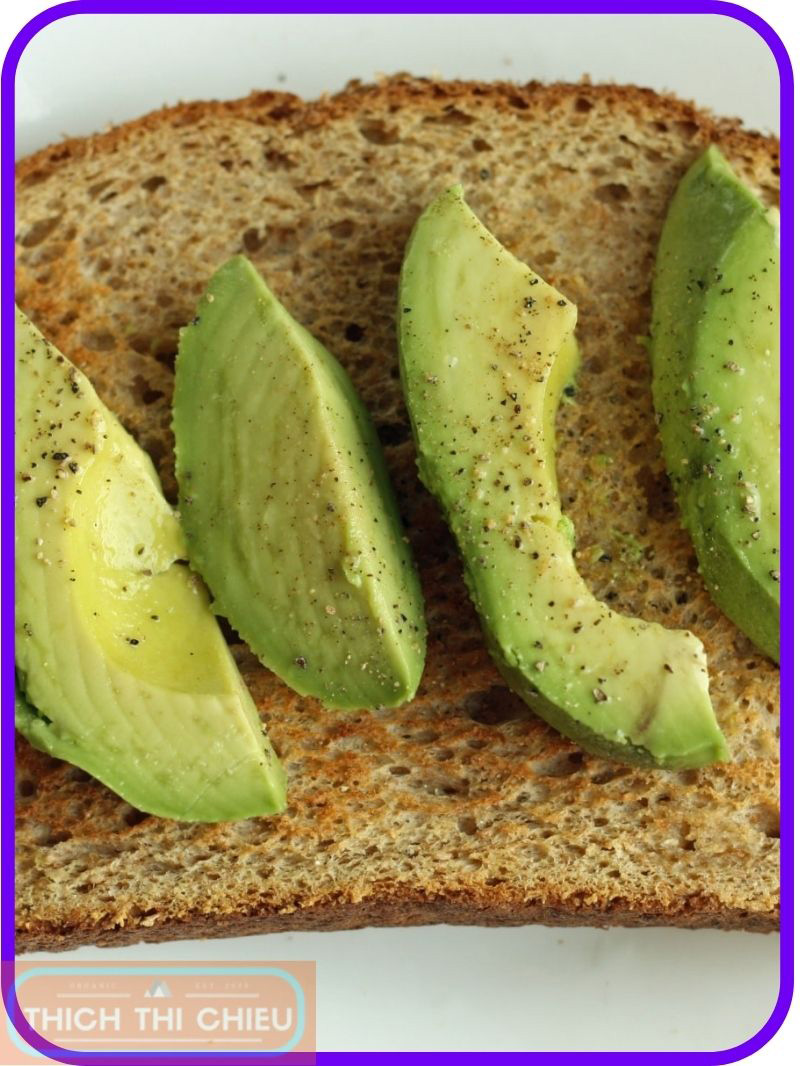
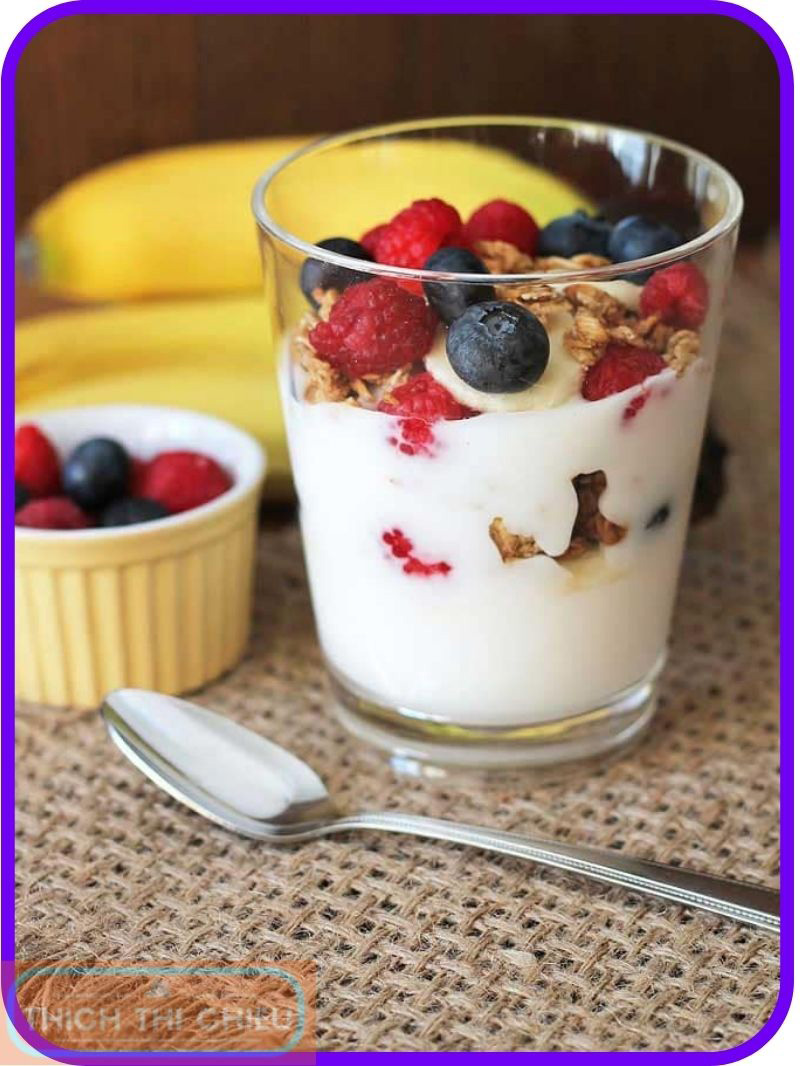


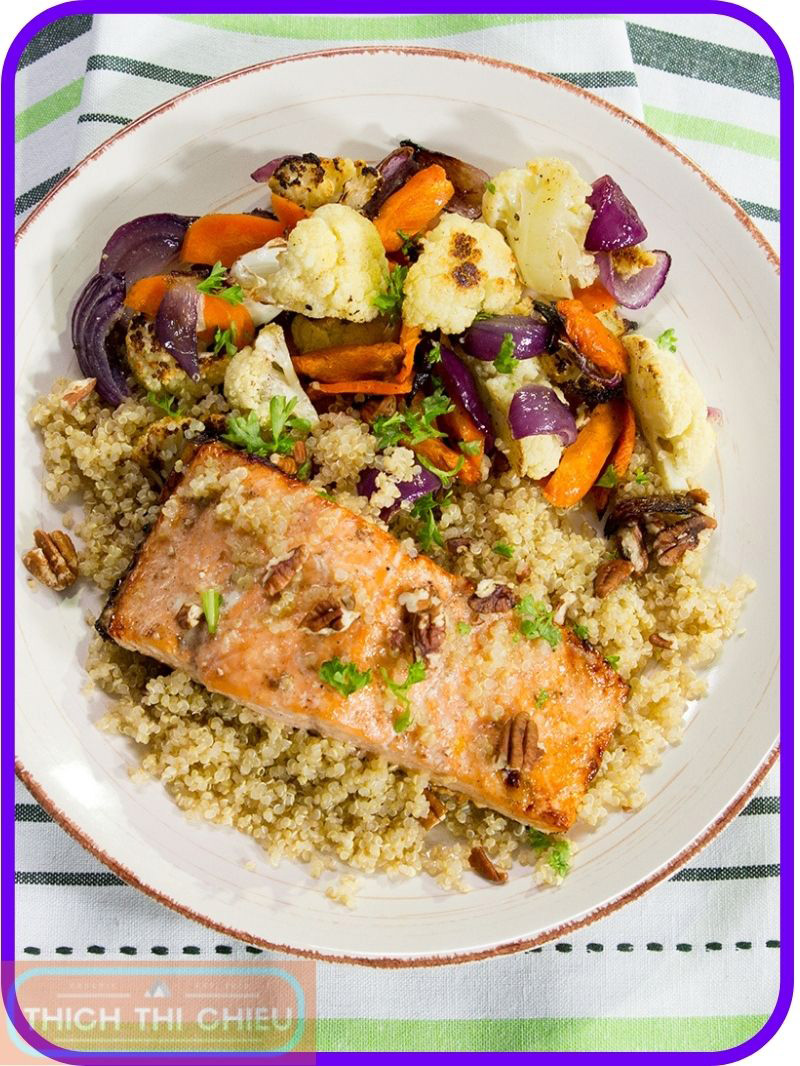

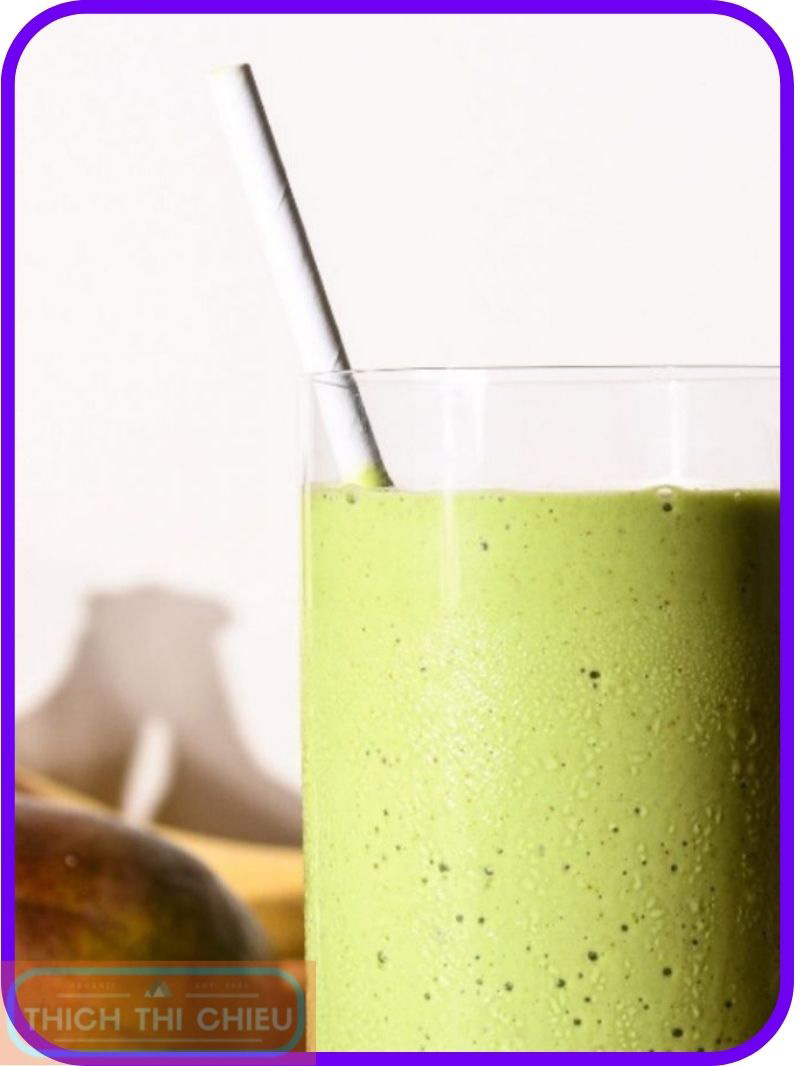





Leave a Reply